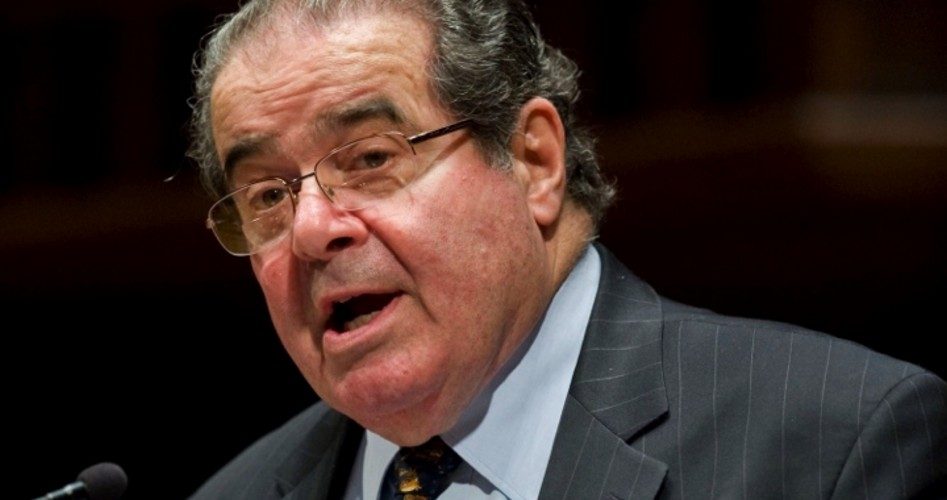
Associate Supreme Court Justice Antonin Scalia (shown), in an address to the University of Minnesota Law School, said, “It wouldn’t surprise me at all” if the High Court struck down capital punishment as “unconstitutional.”
It was clear that Scalia was not hoping the death penalty would be halted by a court ruling, but was rather lamenting that the Supreme Court has made the sentence “practically impossible to impose.” Scalia told the audience his disenchantment with some of his fellow justices, who do not share his view of the Constitution as an “enduring” document, but rather are quick to make it flexible.
Although the U.S. Supreme Court has not yet been so bold as to assert the death penalty is unconstitutional, presumably under the Eighth Amendment’s prohibition against “cruel and unusual” punishment, Scalia explained that multiple death penalty decisions of the court have made it “practically impossible to impose.” He gave as examples rulings adding mitigating circumstances that must be considered, or rulings against its automatic use as a punishment for such things as the murder of a police officer.
In recent years, the Supreme Court has held that the death penalty is “cruel and unusual” under the Eighth Amendment if used on the severely mentally handicapped or minors, and has questioned various methods used among the states. In Glossip v. Gross, the Supreme Court upheld Oklahoma’s use of midazolam as an anasthetic before executions, as a way of ensuring it is not “cruel and unusual.” Associate Justice Sonia Sotomayor, in a dissent, compared Oklahoma’s using lethal drugs to being “burned at the stake.”
It was in the Oklahoma case that Associate Justice Stephen Breyer called for renewed legal debate over the fundamental question of the death penalty’s constitutionality. The court held that capital punishment was unconstitutional in Gregg v. Georgia in 1976, but later reversed itself when several states revised their statutes to address the court’s concerns. Oklahoma, for example, was the first state to enact a death penalty by use of lethal drugs, moving away from the electric chair.
In his dissent in the Glossip v. Gross decision, Breyer opined that “circumstances and the evidence of the death penalty’s application have radically changed” since its reinstatement. “I believe that it is now time to reopen the question” of whether “the death penalty, in and of itself, now likely constitutes a legally prohibited cruel and unusual punishment.”
As recently as 2011, Breyer told the World Affairs Council of Philadelphia that only the legislature can abolish the death penalty. But in his dissent, he pointed to an “emerging global consensus” against the death penalty, noting that most nations in the United Nations have ceased executions.
Amazingly, one of Breyer’s arguments that the death penalty was cruel and unusual was the “excessive delays” found in almost all death penalty proceedings. Scalia directly challenged Breyer on that point, saying that almost all such delays are cause by anti-death penalty activists. He said that this reminded him of the man “sentenced to death for killing his parents, who pleads for mercy on the ground that he is an orphan.”
Associate Justice Clarence Thomas referred to Breyer’s arguments as “pseudoscientific,” while Scalia, in his more colorful way, dismissed them as “gobbledy-gook.”
Scalia wrote that the death penalty could not be unconstitutional, because the Constitution itself states that “no person … shall be deprived of life … without due process of law,” which presumes the legality of the death penalty under the Constitution.
It is clear that Scalia will not join in, should the Supreme Court declare capital punishment unconstitutional, but he is now 79, and in his 30th year on the court — the longest serving member. He told the audience in Minnesota that he is in no hurry to leave the court.
Left unsaid, Scalia is most likely in no hurry to leave and let President Barack Obama pick his successor, a successor almost certainly to make Scalia’s prediction of the death penalty’s demise come true.
Photo: AP Images



